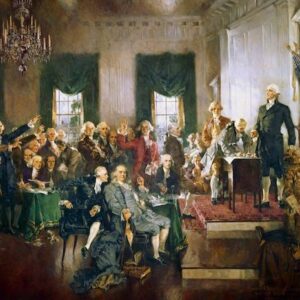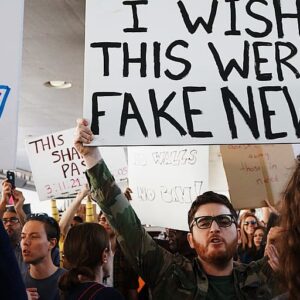Nothing about the American ugly election is certain and everything is possible. The question of where America is heading, after four years of Trumpian upheaval that culminated in the Great American Disaster of Covid-19, is a riddle wrapped in an enigma. What if November 3 does not offer the political reset that so many voters, observers and America’s allies, or even competitors and opponents, are hoping for?
The daunting question is presented with blunt clarity by Dr. Lindsay Newman, a senior global political analyst with the International Relations Laboratory and an expert on US – China trade. She is highly regarded in Europe, Asia and at the United Nations. “No matter who the next occupant of the White House is, he will inherit a country depleted by the health and economic tragedy of Covid-19, exhausted by tweet storms and at least partly disaffected by the election outcome itself”.

America’s fog of uncertainty is pervasive. Factionalism and disinformation prevail. The lumbering giant, still the world’s largest economy (although perhaps not for long) and militarily by far the most powerful nation on earth, is deeply divided by enmity and unresolved social tensions at home, and by lack of a clear and sustainable strategy, in a rapidly emerging multilateral equilibrium that the United States is not (or not yet) ready to accept.
Contrary to what the Founding Fathers intended, the constitutional principle of “checks and balances” is eroded. Congress is sidelined and paralyzed by strife. Justice is increasingly politicized. The Executive, meanwhile, is growing more and more assertive and authoritarian. Is this what American voters want?
The answer would appear to be negative. Americans care about their pluralism. They do not want a political system of “guided democracy” resembling the authoritarian regime of Russia under President Putin. Even less, one can argue with certainty, they would accept a political system similar to the one of China where Parliament acts as little more than a rubber stamp of decisions made by the Mandarins of the Central Committee.
It is for these reasons, essentially, that over 92 million Americans decided to vote early. They were either suspicious of manipulations such as postal delays that would be used as an excuse to suppress their vote, or they wanted to ensure that they would not miss the election on account of expected serious overcrowding and health risks due to the Covid-19 pandemic.
According to Dr. Newman, “increasing evidence indicates that November’s election is unlikely to be the political balm for all that ails the US”. One recent poll, in fact, indicated that 40% of college students plan to participate in protests if Trump is reelected in November. The post-election propulsion to unrest in America appears not to be limited to Trump. An estimated 60% of the students polled said that they would confront their peers who, although they were entitled to vote in the election, did not.

Dr. Newman, the political scientist who is also an associate with the Royal Institute of International Affairs at Chatham House in London, says that there is another finding that is even more concerning as an indicator of democratic erosion in the United States. That is, that among Americans identifying as either Democratic or Republicans, “one in three believe that violence could be justified to progress their political party’s objectives.”
Lindsey Newman is a political scientist and an internationalist with no political agenda. She feels entitled to issue a stark warning to her fellow Americans: “As a long-time scholar of electoral violence here’s what I know. If winners repeatedly win and losers repeatedly lose elections, or if winners are perceived to repeatedly win and losers to repeatedly lose, then losers may pursue alternative strategies to access power.”












